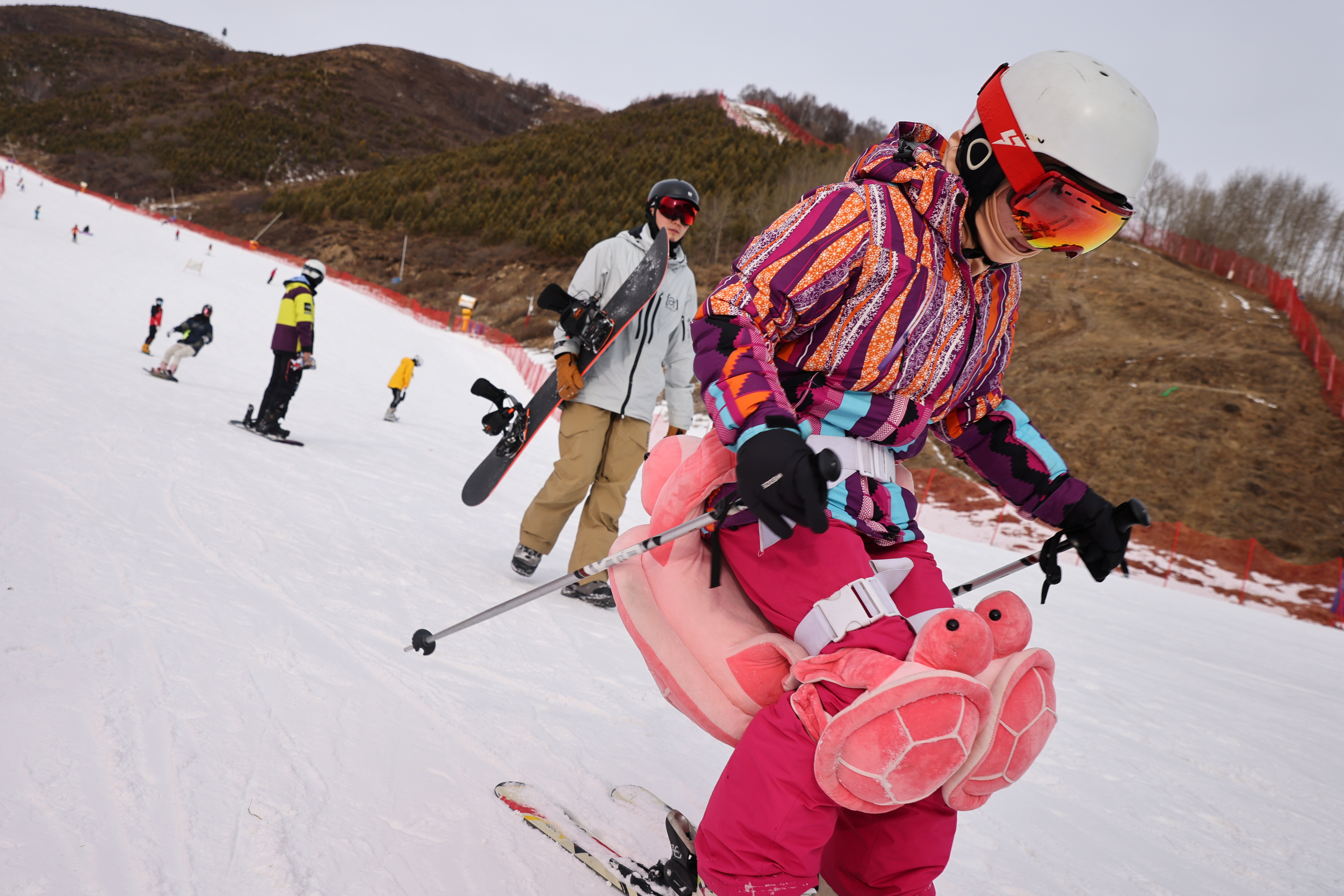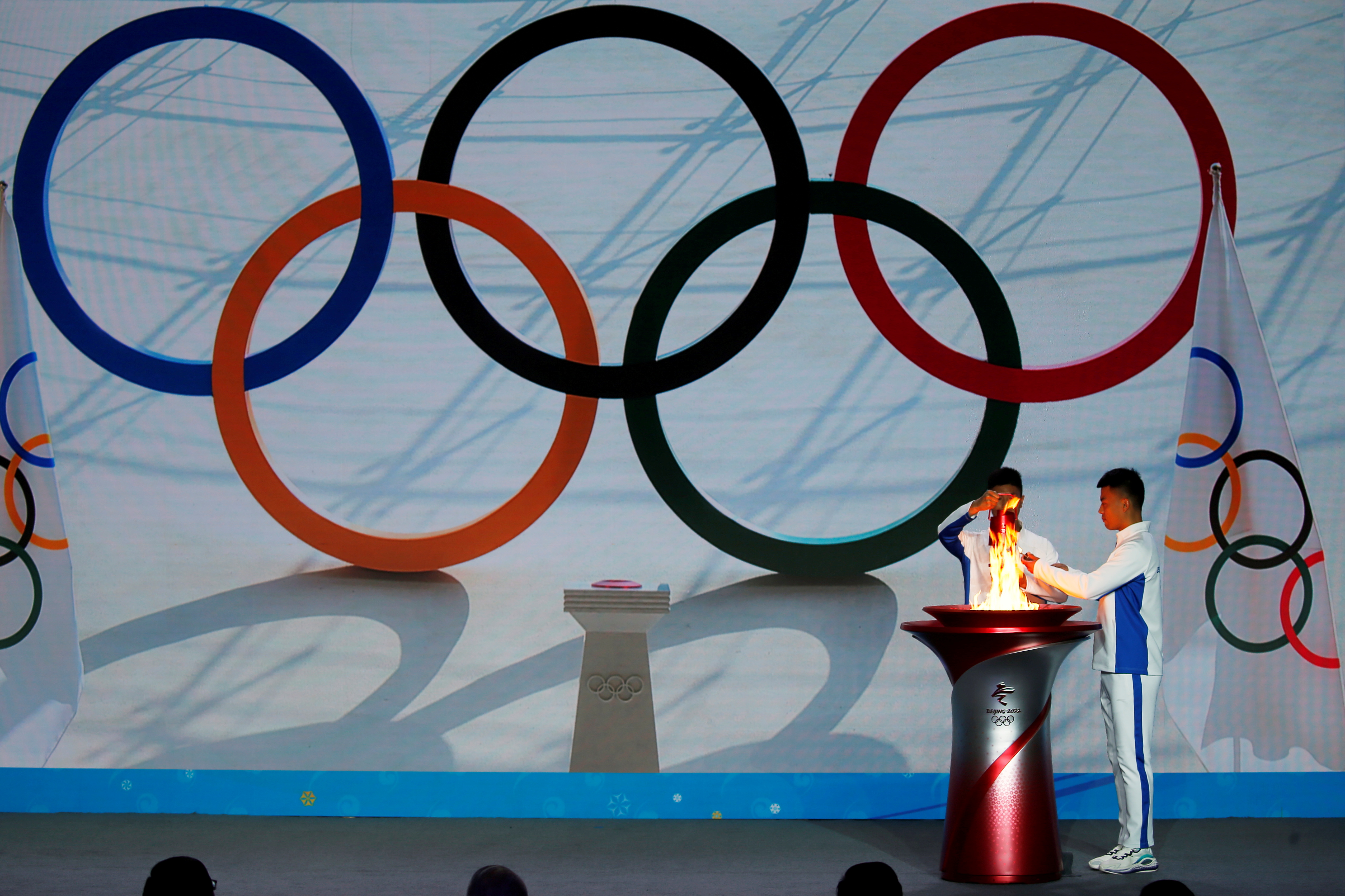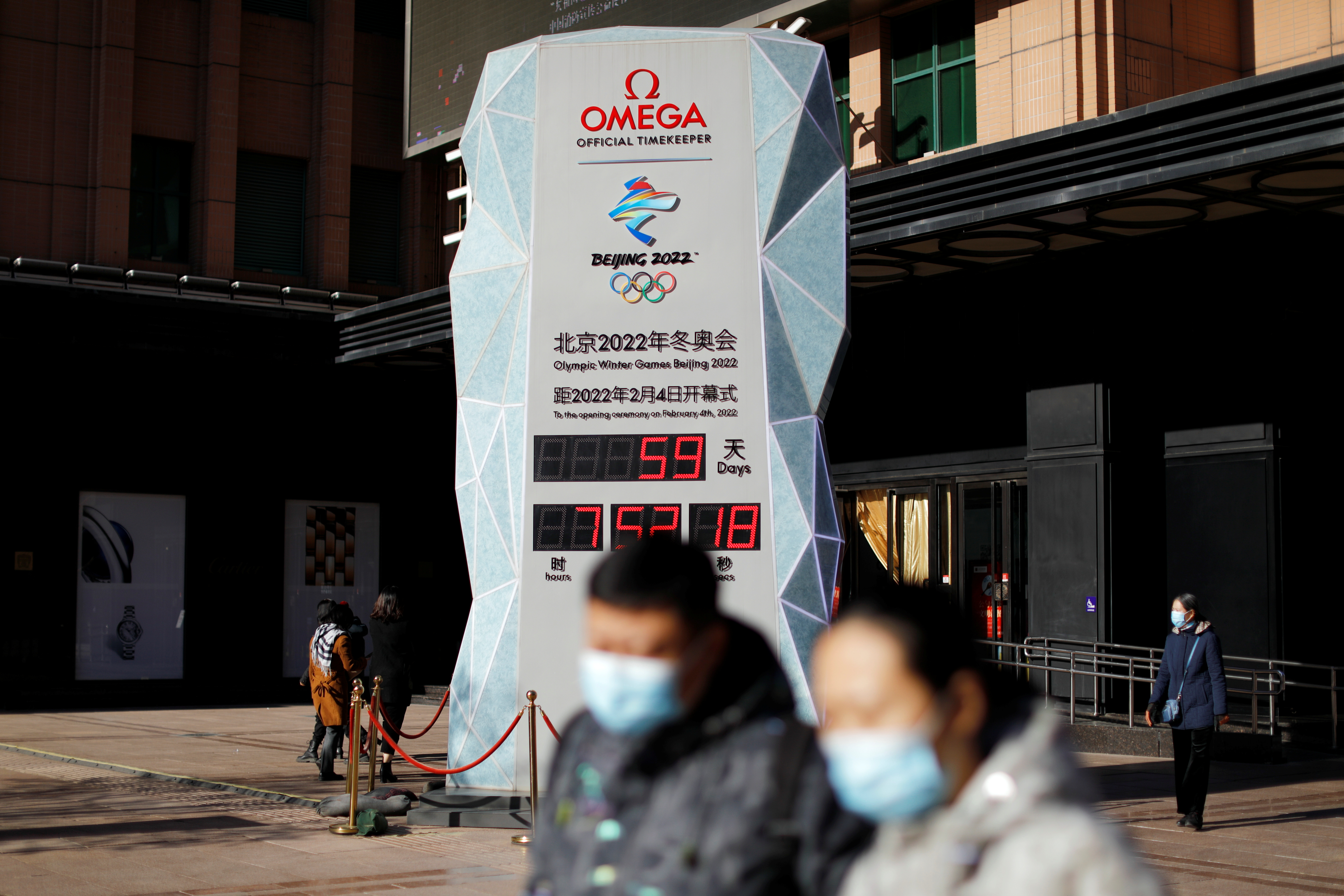Could US-China tensions and omicron derail the 2022 Beijing Winter Olympics?

A few minutes every morning is all you need.
Stay up to date on the world's Headlines and Human Stories. It's fun, it's factual, it's fluff-free.
With the 2022 Winter Olympics in Beijing only two months away, international politics and the pandemic pose problems for the event.
With health and governmental officials expressing reservations around the event due to the emergence and spread of new COVID-19 variant omicron, while tensions between the two largest superpowers mount over trade, human rights and intellectual property – here’s everything you need to know about what’s going on with the 2022 Winter Olympics in Beijing.
First, the sports

The 2022 Winter Olympics will include the following sports: ice hockey, luge, Nordic combined, figure skating, alpine skiing, biathlon, bobsled, cross-country skiing, curling, freestyle skiing, skeleton, ski jumping, snowboarding and speed skating.
Wondering what biathlon is? Combine the grueling endurance of cross-country skiing with shooting rifles at targets every so often. If the skiers miss too many targets, they incur a penalty lap. As for curling, a sport often dominated by Swedish athletes, players slide stones on the ice toward an area shaped like a dartboard to score. Wondering what freestyle skiing consists of? Six disciplines, including aerials, halfpipe, slopestyle and moguls. For non-skiers, moguls are essentially bumpy patches in the snow.
This year, mixed-gender events have been added in snowboarding, ski jumping, and speed skating. In addition, bobsled has a new competition for women.
The host country is not known for its winter sports prowess. In fact, despite an expensive endeavor to develop a Chinese ice hockey team, which included building ice rinks and hiring foreign coaches, there was concern that the International Ice Hockey Federation would ban the team from the Olympics due to insufficient athletic skill.
The IIHF raised concerns about China’s ice hockey team competing against elite teams, including Canada (ranked 1st), the US (ranked 2nd) and Germany (ranked 5th). The worry was that the team might suffer a monumental defeat that may damage the sport’s reputation. However, it was recently confirmed that China’s team (ranked 32nd in the world) would participate in the Games after all.
Did someone say boycott?

The Biden Administration has announced a diplomatic boycott of the Beijing Winter Olympics. While US athletes will still compete, US government officials who have accused China of human rights abuses will stay on American soil in protest. Following this announcement, New Zealand and Australia also confirmed they would follow suit. Other countries, like the United Kingdom are said to be considering a boycott as well.
“US diplomatic or official representation would treat these games as business as usual in the face of the PRC’s [People’s Republic of China] egregious human rights abuses and atrocities in Xinjiang," White House press secretary Jen Psaki said on Monday. “We simply can’t do that."
However, some countries have expressed reluctance to join the boycott. For example, even though the incoming German foreign minister Annalena Baerbock threw in her support of the idea, the European Union seems hesitant to commit.
In response, the spokesperson of the Chinese Mission to the United Nations issued a statement saying, “The US just wants to politicize sports, create divisions and provoke confrontation. The success of the Games does not rely on the attendance of a handful of countries’ government officials."
According to human rights groups and former detainees, China has interned one million Uyghurs and other minorities. Around 12 million Uyghurs are reported to reside in Xinjiang, a semi-autonomous region (or, special administrative region (SAR)) which rests in the northwestern corner of China.
Allegations include forced labor, sexual assault, torture and sterilization. China denies these accusations and refers to the internment camps as “re-education camps,” which they say are necessary to combat terrorism. The Chinese government has also responded to the claims of decreasing the Uyghur population as “baseless," and also says that allegations of forced labour are “completely fabricated."
A recent #MeToo scandal in China has raised international eyebrows as well.
Tennis star Peng Shuai disappeared after accusing a high-profile former Chinese Communist Party (CCP) official, Zhang Gaol, of sexual assault. Less than an hour passed, and the post disappeared. So did any trace of her name on social media. Though Chinese state media has released videos of Peng to qwell the international community’s concern over her disappearance, concerns over her freedom remain.
Could omicron threaten the games?

Given the uncertainty of the past two years, it’s not improbable that the new COVID-19 variant known as omicron could threaten the games. Despite China’s relative success in battling the coronavirus, recent outbreaks have raised alarms.
In an event that necessitates a horde of international athletes to gather and compete, prevention and control will likely prove challenging for Chinese health authorities. In addition, the sheer number of organizers involved in the event’s planning and execution also poses a challenge.
But China remains undeterred, citing its effective response to the pandemic as evidence that the Olympic Games will proceed smoothly. Moreover, if it succeeds, the Beijing Olympics could sway other countries to follow China’s zero-tolerance pandemic policy.
However, the lack of information about omicron and its transmissibility (thus far, it seems highly transmissible) make the future of 2022 unclear, and that includes the Winter Olympics.
Have a tip or story? Get in touch with our reporters at tips@themilsource.com




Comments ()